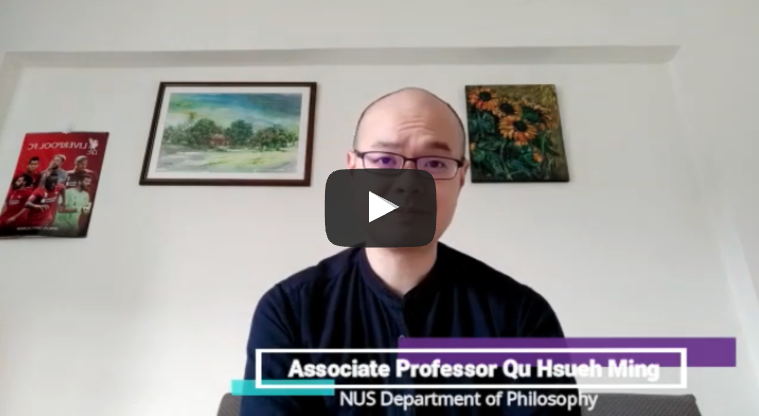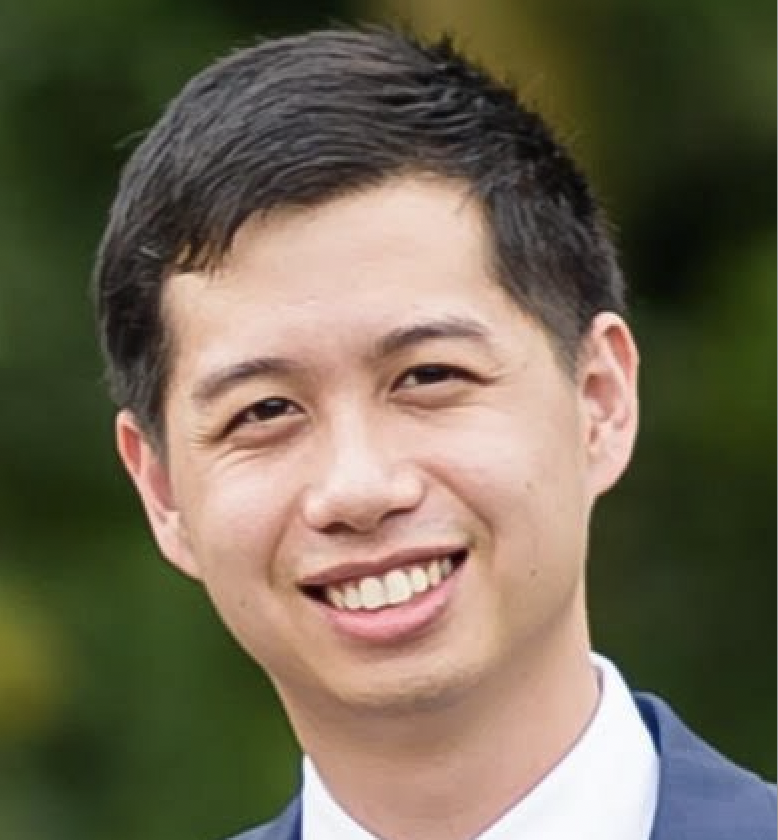
Why pursue graduate study in Philosophy?
The Department of Philosophy is one of the very few departments in the world that offer specialisation at the graduate level in four independent traditions of philosophical research: Anglo-American (Analytic) Philosophy, Continental (European) Philosophy, Chinese Philosophy, and Indian Philosophy. Our recent graduate students have completed theses in a diverse array of topics cutting across the East/West divide, ranging from a Confucian approach to the tragedy of the commons to the political implications of Kantian ethics and to David Lewis' modal realism.
Though the faculty's research and teaching interests cover a wide variety of topics, the department has particular strengths in ethics, aesthetics, classical Confucianism, early modern philosophy, philosophy of language, epistemology, mind, logic, philosophy of math, and philosophy of science. Our students hail from different regions of the world, thus making the Department especially attractive to those students who would like to study in Asia in a cosmopolitan environment.
The department offers the M.A. in Philosophy, requiring both coursework and the submission of a written thesis. Applicants for the M.A. degree should (preferably) have a good honors degree in Philosophy from NUS or a recognized foreign university. It also offers the Doctorate in Philosophy, requiring both coursework and the submission of a written thesis. Admission into the Ph.D. programme requires a good Master’s degree or equivalent in a relevant discipline.

Graduate Coordinator's Message
A/P Ben Blumson
He completed his Ph.D. in Philosophy in 2007 from the Australian National University and joined the National University of Singapore as an Assistant Professor in 2009. A/P Blumson is currently an Associate Professor. His publications can be found here.
Programmes & Curriculum
About the Course
The department offers the M.A. in Philosophy, requiring both coursework and the submission of a written thesis. Applicants for the M.A. degree should (preferably) have a good honors degree in Philosophy from NUS or a recognized foreign university, though the department may also admit students with a good Bachelor’s degree with relevant research or working experience on a case-by-case basis, subject to approval by the Board of Graduate Studies (BGS). The maximum period of candidature is 36 months.
The programme involves reading 4 coursework modules (4 MCs each), with a maximum of 2 Independent Study Modules. At least 75% of the total MC requirements must be at level 5000 or 6000. Up to 25% of the total MC requirements may be at level 4000, subject to the approval of the department. The coursework requirement includes a compulsory Graduate Research Seminar that will be assessed on a "satisfactory" / "unsatisfactory" basis. Gaining a satisfactory pass in the Graduate Research Seminar is a condition for continuing in the graduate programme, and all graduate students are required to enroll in the module in the first year of their studies. Credits for relevant coursework taken in another NUS programme or elsewhere may be transferred subject to department approval.
The first part of the Graduate Research Seminar (conducted in the first semester of the academic year) would be conducted like a regular graduate module, emphasis would be placed on developing the students' writing abilities and verbal philosophical skills. There will also be weekly writing assignments for the purpose of developing time management skills in the students. The topic of the GRS, which will vary from year to year, will be tailored to the interests of the students. The second part of the GRS (conducted in the second semester of the academic year) will be for Graduate Student Presentations.
Independent Study Modules are, by default, to be taken in conjunction with an undergraduate honors module offered in the same semester under the supervision of the instructor of that module. The graduate student taking the ISM will be required to fulfill the classroom requirements of the honors module and any additional requirements congruent with this being a graduate level module (to be clearly specified in the ISM contract in agreement with the supervisor). All ISMs will be approved on a case-by-case basis.
Course Structure
For continuation of M.A. candidature, the student's CAP should not fall below 2.50 (C) for 2 consecutive semesters or 3.00 (C+) for 3 consecutive semesters. Termination of candidature would result if a student fails to maintain the minimum CAP as stipulated.
The following criteria must be met for graduation for a M.A. candidate:
- Minimum CAP of 3.00 (C+)
- Not fail more than 2 modules
- Where applicable, obtain satisfactory grades (at least grade C) in the graduate English modules conducted by the CELC at intermediate level
- Pass the Master's thesis
For more information, please visit here.
About the Course
The department offers the Doctorate in Philosophy, requiring both coursework and the submission of a written thesis. Admission into the Ph.D. programme requires a good Master’s degree or equivalent in a relevant discipline. The maximum period of candidature is 60 months.
Ph.D. candidates are required to read and pass a minimum of 6 coursework modules (4 MCs each), with a maximum of 2 Independent Study Modules. At least 50% of the total MC requirements must be at level 6000. Up to 25% of the total MC requirements may be at level 4000, subject to the approval of the department. The remaining MCs must be at level 5000 or above. The coursework requirement includes the compulsory Graduate Research Seminar that will be assessed on a “satisfactory” / “unsatisfactory” basis. Gaining a satisfactory pass in the Graduate Research Seminar is a condition for continuing in the graduate programme, and all graduate students are required to enroll in the module in the first year of their studies. Credits for relevant coursework taken in another NUS programme or elsewhere may be transferred subject to department approval.
The first part of the Graduate Research Seminar (conducted in the first semester of the academic year) would be conducted like a regular graduate module, emphasis would be placed on developing the students' writing abilities and verbal philosophical skills. There will also be weekly writing assignments for the purpose of developing time management skills in the students. The topic of the GRS, which will vary from year to year, will be tailored to the interests of the students. The second part of the GRS (conducted in the second semester of the academic year) will be for Graduate Student Presentations.
Independent Study Modules are, by default, to be taken in conjunction with an undergraduate honors module offered in the same semester under the supervision of the instructor of that module. The graduate student taking the ISM will be required to fulfill the classroom requirements of the honors module and any additional requirements congruent with this being a graduate level module (to be clearly specified in the ISM contract in agreement with the supervisor). All ISMs will be approved on a case-by-case basis.
Course Structure
For continuation of Ph.D. candidature, the CAP should not fall below 3.00 (C+) for 2 consecutive semesters or 3.50 (B-) for 3 consecutive semesters. Termination of candidature would result if a student fails to maintain the minimum CAP as stipulated.
The following criteria must be met for graduation for a Ph.D. candidate:
- Minimum CAP of 3.50 (B-)
- Must not fail more than 2 modules
- Where applicable, obtain satisfactory grades (at least grade C) in the graduate English modules conducted by the CELC at advanced level
- Pass the Ph.D. Qualifying Examination
- Pass the Ph.D. Thesis
- Pass the Oral Examination
For more information, please visit here.
Job Ready
The Department of Philosophy graduate programmes equip students with critical and analytical skills, as well as knowledge of Asian philosophical traditions, enabling them to do well in many career areas. Philosophy graduates have been recruited by diverse organisations such as The Straits Times, MediaCorp Pte Ltd, multinationals such as Shell and IBM, the Economic Development Board, Neptune Orient Lines, Singapore International Airlines, established commercial banks, and numerous divisions of the Civil Service.
Large organisations and employers value the evidence of independent thought, capacity for good writing & research, and flexible, integrative and critical thinking that an education in Philosophy provides. Also, for students who wish to pursue the subject at a higher level, the graduate programmes provide opportunities for students to take up a career in the research and teaching of Philosophy.
Testimonials

Daryl Ooi Shen
PhD Student in Philosophy
Reading philosophy has allowed me to think more deeply about questions I think many of us have had since we were young - what is the nature of right and wrong, what is the meaning of life, how do I know whether what I believe is true.
Gabriele Leonie Escoffier
PhD Student in Philosophy
NUS dynamic and multicultural background is a fantastic research environment. As a student in Chinese Philosophy, I can specialise in my field while meeting constant opportunities to broaden and enrich my philosophical interests.

The Faculty of Arts and Social Sciences, National University of Singapore (NUS) is committed to environmental sustainability.
This e-brochure is part of our sustained effort to reduce waste and foster a culture of care for the environment among the NUS and broader community.

